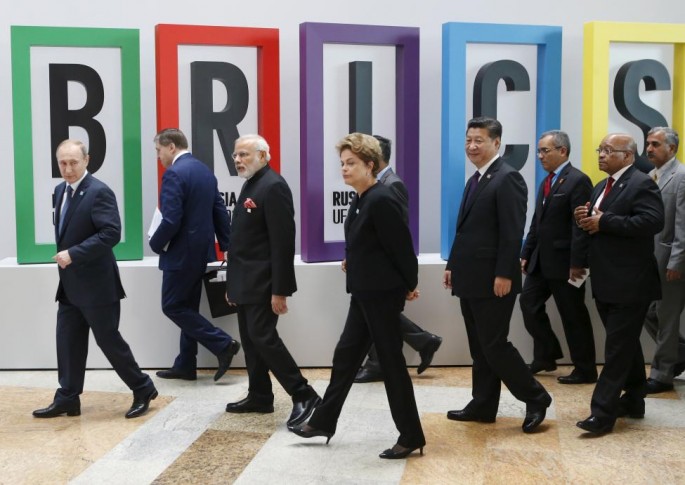The New Development Bank (NDB) was launched in Shanghai on Tuesday, with the hope of augmenting existing multilateral institutions in financing infrastructure projects and reforming economic governance in the international arena, according to a report by the Global Times.
Supported by Brazil, Russia, India, China and South Africa (BRICS), the bank will lend money to developing nations and will have a rotating leadership every five years.
BRICS countries also agreed on an initial capital of $50 billion from their respective contributions and a currency reserve pool of $100 billion.
Operations are expected to begin by the end of 2015 or at the beginning of 2016.
In the meantime, the bank will be busy forming an organizational structure and conceptualizing business policies, according to NDB president Kundapur Vaman Kamath, who is from India.
Kamath hopes to hold the first round of financing in Shanghai by issuing yuan-denominated bonds.
In addition, Jim Yong Kim, president of the World Bank, pledged a collaboration with the new bank and other institutions to address the needs of the world economy.
To better cater to the needs of its clients in different development stages, China's Finance Minister Lou Jiwei stated that the NDB should focus on innovations to be more cost-effective and efficient.
Some companies have already shown interest in acquiring a loan from the bank, such as Eskom, South Africa's major electricity provider.
Eskom's acting CEO, Brian Molefe, shared that they plan to borrow money from the NDB to fund construction of new power plants.
China expects the bank to help increase cooperation among BRICS countries, Minister Lou added.
"The launch of the NDB indicates the enhanced level of cooperation among BRICS countries, as it turns the informal cooperation into a concrete institution," said Xu Xiujun, a research fellow at the Chinese Academy of Social Sciences.



























